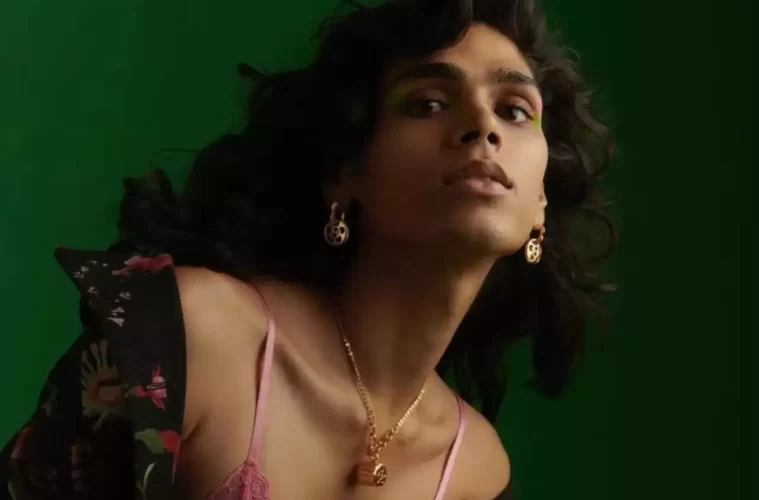It was the night of February 24th when an Indian model and designer Nin Kala landed at the Muscat International airport to explore the city on a tourist visa. She was with a few friends. All of them cleared the emigration, except Kala as she belongs to the LGBTQ community.
The two immigration authorities took her to a separate room to “examine”. She was asked to remove her shirt. She thought it was a regular examination. But then, the officer called another officer, who again made her remove shirt. “The officer pinched my belly and asked why my body is so smooth and hairless. It was an inappropriate question, but I said that is how my body is and I was born like this,” told Kala who
identifies herself as genderqueer and non-binary trans person.
It was humiliating for Kala. After such an humiliating examination, the officers told Kala that she can’t enter the country and that she needed to go back to India. They said Kala does not look like as in her passport.
“I had to wait the entire night and book my morning flight back to my country India. They called this an examination, but it was a humiliation for me. They were giggling and laughing at me as if some entertainment was going on,” told Kala.
When she came out of the examination room a couple of people approached her looking at her being stressed and depressed. “I can see they were feeling bad about what happened to me. They were Omanis and they sympathized with me. I think it is not the religion, but those 2-3 immigration authorities who had the problem with my sexuality,” told Kala.
Kala has no problem being denied entry to the country, but the way she was denied was a problem. “There is a polite way to deny access to your country, but they were homophobic and transphobic,” said Kala.
She did her research on their website before planning to go to the country. “On their website, there was no rule against the LGBTQ community. They should clearly mention if they are against the community,” said Kala. Most of the Gulf Cooperation Council (GCC) countries have laws against the community and they have mentioned it clearly. The GCC countries are Bahrain, Kuwait, Oman, Qatar, Saudi Arabia, and the United Arab Emirates.
Kala is 26 and has established herself professionally. She has been transitioning for the last three years. “Although I have been transitioning, but I look the same as my passport. I do have the identity card that the Indian government provides to trans individuals. My passport says I am a Male and my name is Nitin Baranwal on my passport. I am trying to update these things, but documentation takes time. My trans identity card has my current name called Nin Kala,” told Kala who has her own house in Mumbai’s Thane area.
She was not even wearing a dress that exposed her body. She was well covered, she said. Ever since she has been transitioning, she has flown to two countries, the United Kingdom, Bangkok and Muscat was the third one. “It did not happen to me before,” added Kala.
The incident affected her mental health, but she managed to deal with it sooner. “For people like us such incidents are common. Not with such authority, but from society and family. So I have become a strong person. But such incidents really affect your mental health badly,” told Kala.
It is not the first time that this is happening to a transgender, but many have faced the same. According to news reports, two transgender rights activists from Pakistan Shahzadi Rai and Zehrish were denied permission to fly to Kathmandu via the United Arab Emirates, early this year. They were not flying to any UAE country, but via Dubai to Kathmandu from Karachi Airport. When they were about to board the flight, their ticket got cancelled by Flydubai.
Shahzadi took to twitter and expressed her anger and concern. “Transgender persons are part of the mainstream in other countries but Flydubai doesn’t allow x-gender cards for travelling, which is transphobic behaviour by the airline. If they don’t allow travel on their planes then why even issue us tickets,” Shahzadi questioned.
Kala also mentioned that this has happened to a few transgender persons earlier. “I would suggest to all the community people not to plan any trip to these countries to avoid trouble,” she suggested, as she wanted to create awareness through her video that she posted on the internet narrating her entire experience at the Muscat International airport.
- Silenced Voices: A Transgender Teacher’s Battle for Employment Rights - October 9, 2023
- From India’s first Transgender Photojournalist to Begging in Trains for Alms - September 20, 2023
- Despite Qualification, Transgender Candidates Find it Hard to Secure a Job - September 12, 2023


